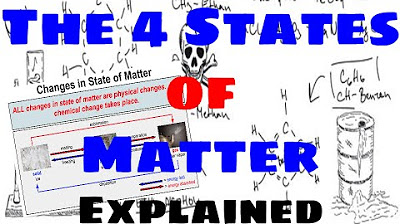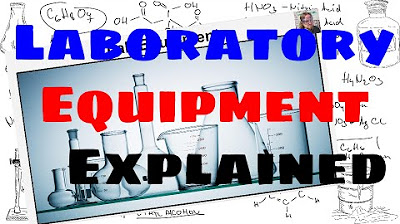CESC: Learning About Community
Summary
TLDRIn this educational video, instructor Mr. Tripp Anthony E. Ramos introduces the concept of community engagement, emphasizing its importance for social beings like humans. He explains that understanding communities is key to appreciating daily interactions and addressing collective challenges, such as the pandemic. The video explores various perspectives on defining community, including social science, civil society, and organic viewpoints, highlighting the role of grassroots organizations and the significance of community identity and collective action.
Takeaways
- 😀 Learning about communities is essential as it helps us appreciate our daily interactions with others and understand our role in social connections.
- 🤔 Humans are inherently social beings, which necessitates daily interactions with others for survival and growth.
- 🌐 Recognizing the importance of social connections, such as friends, family, and acquaintances, is crucial for understanding our place in the community.
- 🤝 Understanding why people form relationships and bonds, and how these operate in a broader social setting, helps us appreciate the value of our contributions to the community.
- 🌟 Our actions, whether we admit it or not, have an impact on our community, highlighting the importance of being mindful of our contributions.
- 🏥 Addressing collective challenges, such as a pandemic, requires a collective action that starts with understanding and engaging with our community.
- 🔍 Familiarity with the community's history, people, and issues is crucial for effective community initiatives and interventions.
- 📚 The study of communities involves various disciplines, including sociology, political science, and anthropology, each contributing unique perspectives on community dynamics.
- 🏛️ Sociology focuses on group formations, relationships, community dynamics, and social actions within a social structure.
- 🏦 Political science is concerned with public affairs, consensus building, power dynamics, and the allocation and distribution of resources and values.
- 🌳 Anthropology helps examine the complexities of history and culture within communities, providing insights into local development and issues.
Q & A
Why is it important to learn about communities?
-Learning about communities is key to appreciating our daily interactions with others. It helps us understand our social connections and the dynamics within our community, which is crucial for addressing collective challenges and contributing meaningfully to our community.
What does the instructor, Mr. Tripp Anthony E. Ramos, suggest is the fundamental reason for studying community concepts?
-The fundamental reason for studying community concepts is to be able to impart something beneficial to the community and to understand the dynamics within it, which aids in responding to collective challenges such as a pandemic.
How do humans naturally fit into the concept of community?
-Humans are inherently social beings, which means they naturally fit into the concept of community by having daily interactions with others, forming relationships, and being part of social connections.
What does the script suggest is the impact of our actions on the community?
-The script suggests that our actions, whether we admit it or not, have an impact on the community. This impact is one of the reasons why it's important to study and understand community dynamics.
What role does the community play in addressing challenges like a pandemic?
-In addressing challenges like a pandemic, the community plays a crucial role through collective action. This includes the involvement of various sectors such as vaccine manufacturers, businessmen, and community members working together to efficiently address the problem.
What are some of the disciplines involved in the study of communities?
-Some of the disciplines involved in the study of communities include sociology, which looks into group formations and social actions, political science, which focuses on public affairs and resource distribution, and anthropology, which examines the complexities of history and culture within communities.
What is the etymological definition of 'community' as mentioned in the script?
-The etymological definition of 'community' comes from the Latin word 'communitas', which means fellowship. The Latin roots 'communis' and 'tas' translate to 'common' and 'strengthen', respectively, indicating that the essence of community is to strengthen or fortify together.
How does the social science perspective define a community?
-From a social science perspective, a community is defined as an informally organized social entity characterized by a sense of identity, where people living in the same defined area share common basic values, organization, and interests.
What is the civil society perspective on defining a community?
-The civil society perspective defines a community as a political community of organizations operating within the authoritative parameters of the state, distinct from the government and market sectors, and includes entities like NGOs and people's organizations.
What is the significance of the organic perspective in understanding communities?
-The organic perspective focuses on local or grassroots groups within a particular locale that are organized due to community issues and concerns. It is significant in understanding communities as it emphasizes the importance of local development goals and addressing particular issues at the grassroots level.
How do grassroots organizations contribute to the sense of community?
-Grassroots organizations contribute to the sense of community by working together to pursue identified tasks or goals. This collective action strengthens the sense of community as members collaborate to achieve common objectives.
Outlines

此内容仅限付费用户访问。 请升级后访问。
立即升级Mindmap

此内容仅限付费用户访问。 请升级后访问。
立即升级Keywords

此内容仅限付费用户访问。 请升级后访问。
立即升级Highlights

此内容仅限付费用户访问。 请升级后访问。
立即升级Transcripts

此内容仅限付费用户访问。 请升级后访问。
立即升级浏览更多相关视频

تاسع اليمن: الصف التاسع مادة اللغة الإنجليزية | تعاريف الوحدة الأولى @wyenglish

EMODULE 1.2 - The Fibonacci Sequence

The Four States of Matter - Explained

Lab Equipment - Explained

3. Gr 11 Life Sciences - Population Ecology - Theory 3 Mark Recapture Method

2nd sem Minor/DSC EDUCATION suggestion #northbengaluniversity #4thsemester #exampreparation
5.0 / 5 (0 votes)
